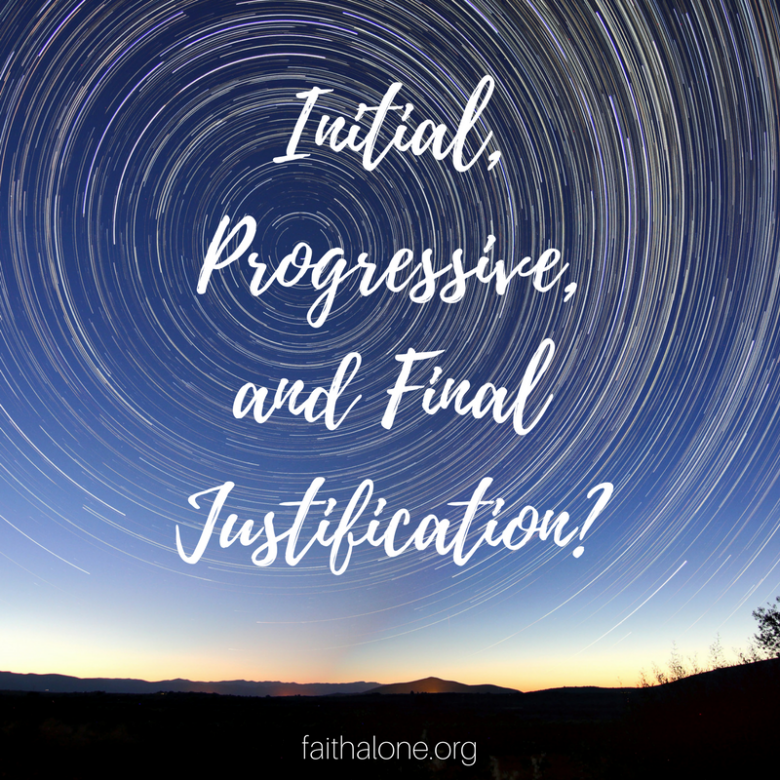A reader sent me a Roman Catholic article entitled, “Justification by Faith Formed in Love (Not by Faith Alone) in the Bible and Early Church Writings.” You can find the article here.
It has become common in the last twenty-five years for Evangelicals to speak of “initial justification” and of “final justification.” In this article by a former Evangelical turned Roman Catholic, the author uses both of those expressions as well as one implied by those two, “progressive justification.” I’ve never seen an Evangelical speak of progressive justification. But that accurately describes what Lordship Salvation Protestants believe.
Here is how the author defines progressive justification: “maintaining and increasing this actual change [begun in baptism and initial justification] by overcoming the habitual moral weakness of our fallen humanity (‘concupiscence’), which requires us to honestly strive to cooperate with God’s indwelling Holy Spirit in our daily lives.” He goes on to say that final justification “occurs on the day of final judgment, where our Lord himself and St. Paul both promised that all will be judged according to their deeds.”
I wonder if the expression progressive justification will catch on in Evangelical circles. Whether it does or not, once someone says that we are not once and for all finally justified at the very moment of faith, he believes that justification is a lifelong process. He believes one must persevere in faith and good works until death in order to obtain this final justification. It seems reasonable to call this process progressive justification. After all, Evangelicals already speak of progressive sanctification. If progressive sanctification is necessary to obtain final justification then progressive justification is another name for progressive sanctification.
If you ever wonder if there is a need for Free Grace Theology, just read the stuff that Evangelicals and Catholics are writing. The need for a clear witness to salvation that is by faith alone in Christ alone apart from any works before or after the new birth is colossal.


